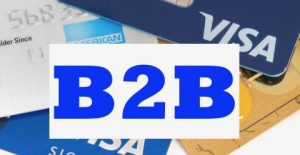Upgrading to D365 from Microsoft AX? Engaging a payment processing professional can save boatloads of development time while opening up new ways to engage with customers. Additionally, payment gateway selection directly impacts EBITDA project objectives. What three key questions must be asked when choosing a credit card processing solution for your business to business operation?
I’ll save merchants and consultants reading this a lot of time. Ask the 3 questions and then pretty much disregard the answers. You’re unlikely to find anyone who will be able to answer all three questions adequately so on that basis alone, it’s best to contact a subject matter expert like Christine Speedy, here at 3Dmerchant.com.
- Does the payment gateway support Unschedule Credential On File? Virtually every business to business operation stores at least a few credit cards for the occasional customer on file need, which is a good thing because if you’re one of those that require customers to call in each time, that’s negative friction impacting cash flow, profits, and satisfaction. What most businesses don’t know is that the rules and technical specifications for storing cards and processing transactions with stored cards changed tremendously in October 2017. Virtually no payment gateway has upgraded to get compliant, leaving businesses exposed to multiple financial penalty risks. Note, this is not just ‘tokenization’, which most gateways support, but rather a specific set of new card acceptance rules. Everyone in the payment ecosystem has some responsibility to make changes for compliance- issuer, acquirer, merchant and payment gateway. No one can ‘automatically’ get merchants compliant with new UCOF rules; if any vendor says they have, call 3Dmerchant to review why it’s not.
- If the initial authorization and final settlement amount are not the same, what happens? This is a common scenario for distributors, manufacturing and ecommerce, but if there’s a mismatch, an or an open authorization is not reversed, merchants pay an expensive processing penalty fees. For example, MasterCard Data Rate 1 might appear on merchant statements for interchange rate qualification, which is nearly 100 basis points higher than if settled optimally.
- Is there any difference between the type transaction transmitted to the acquirer when a customer self-pays an invoice such as through a payment portal vs when an employee key enters the cardholder data? The answer must be yes. One is submitted as a phone order (MOTO) and one is submitted as an ecommerce order.
- BONUS: What’s the process for renewing an expired authorization? Preauthorizations are common in manufacturing and ecommerce. While an expired authorization is usually approved for final settlement within 30 days, there are financial penalties and risk associated with using expired authorizations. Merchants should automate this process as much as possible, removing decisions from employees, which is always fraught with risk.
- BONUS 2: Can I process EMV chip transactions with level 3 processing in F&O? Due to October 2019 licensing changes, some merchants may find it more profitable to skip the retail license add-on.
Call Christine Speedy, PCI Council QIR certified, for all your Microsoft Dynamics AX and D365 payment processing needs from ACH to credit cards and more. Get a new or keep existing merchant account at 954-942-0483, 9-5 ET.

